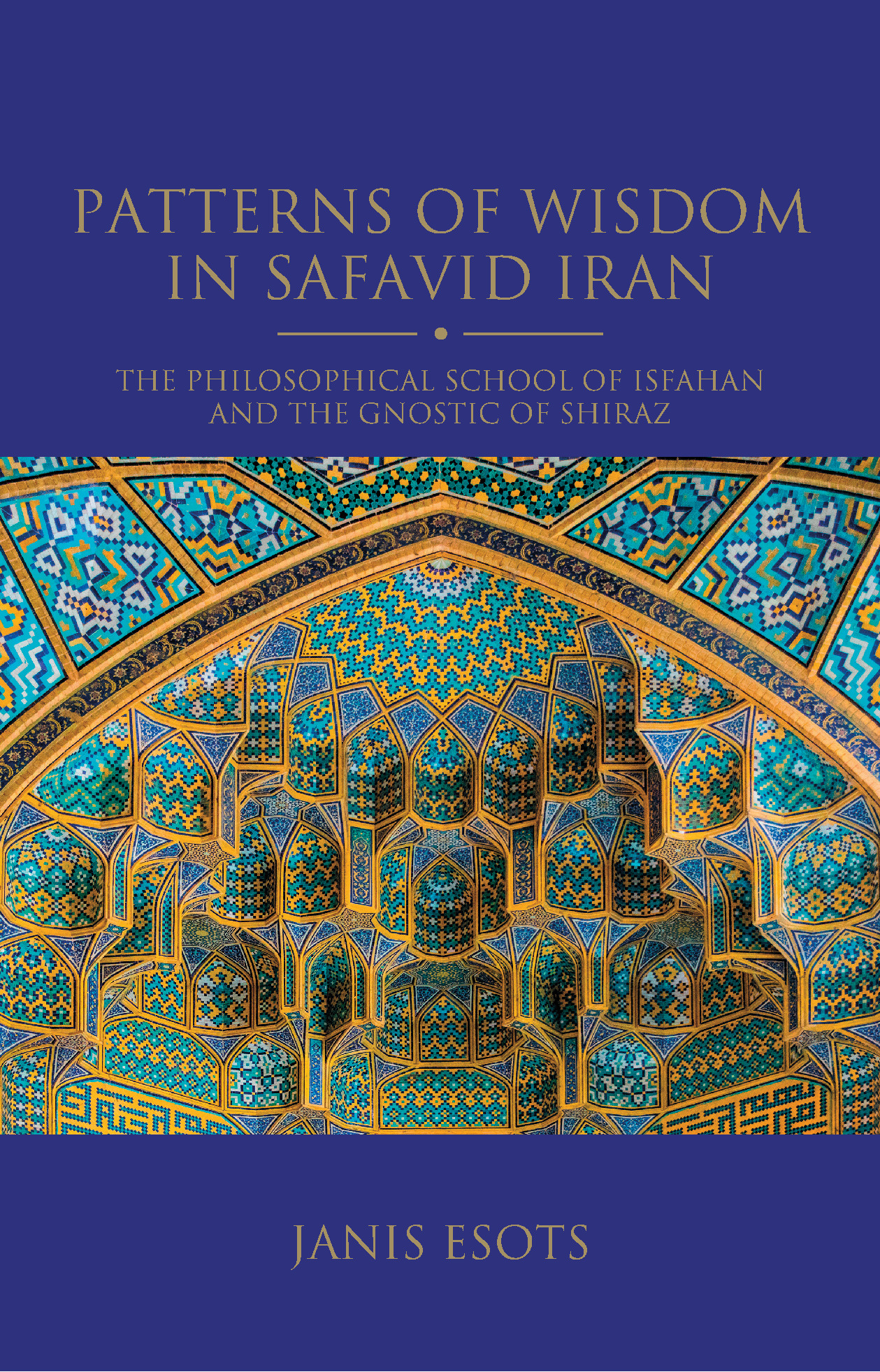The exceptional intellectual richness of 17th-century Safavid Iran is epitomised by the philosophical school of Isfahan, and in particular by its ostensible founder, Mīr Dāmād (d. 1040/1631), and his great student Mullā Ṣadrā (aka Ṣadr al-Dīn Shīrāzī, d. 1045/1635–1636). To their respective platonic and existentialist doctrines can be added the apophatic wisdom of Rajab ʿAlī Tabrīzī (d. 1080/1669–1670).
However, despite these philosophers’ renown, the identification of the ‘philosophical school of Isfahan’ was only proposed in 1956, by the celebrated French Islamologist Henry Corbin, who noted the unifying Islamic Neoplatonist character of some twenty thinkers and spiritual figures; this grouping has subsequently remained unchallenged for some fifty years.
In this highly original work, Janis Esots investigates the legitimacy of the term ‘school’, delving into the complex philosophies of these three major Shiʿi figures and drawing comparisons between their doctrines. The author makes the case that Mullā Ṣadrā’s thought is independent and actually incompatible with that of Mīr Dāmād and Rajab ʿAlī Tabrīzī. This not only presents a new approach to how we understand the ‘school of Isfahan’, but it also identifies Mīr Dāmād and Rajab ʿAlī Tabrīzī as pioneers in their own right.
Note on the Text
Acknowledgements
Introduction
1. School of Iṣfahān I: Mīr Dāmād’s ‘Wisdom of the Right Side’
2. The Gnostic of Shīrāz: Mullā Ṣadrā and His ‘Transcendent Wisdom’
3. School of Iṣfahān II: The Apophatic Wisdom of Rajab ʿAlī Tabrīzī
4. The Doctrines of Mīr Dāmād, Mullā Ṣadrā, and Rajab ʿAlī Tabrīzī: A Comparative Analysis
Conclusion
Bibliography
Index
‘a rigorous, well-researched, and enthralling work that enhances understanding of Safavid philosophy and is certainly an apt and important contribution to The Institute of Ismaili Studies’ Shiʿi Heritage Series.’
– Gianni Izzo, Iranian Studies
Janis Esots was a Research Associate at the Institute of Ismaili Studies, London, UK, and Associate Professor at the Department of Asian Studies, University of Latvia, Latvia. His research focused on Ismaili thought and the so-called ‘philosophical school of Isfahan’ (Mullā Ṣadrā, Mīr Dāmād, and Rajab ʿAlī Tabrīzī). He was the managing editor of Encyclopaedia Islamica and the editor of the Islamic Philosophy Yearbook, Ishraq.

